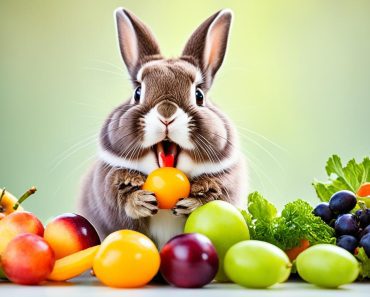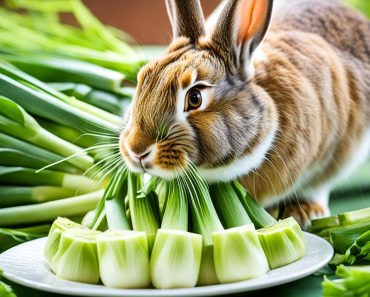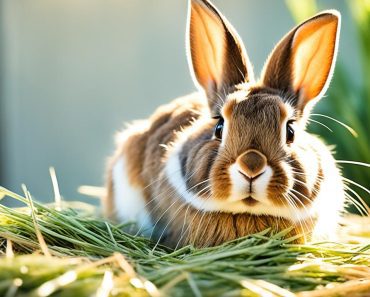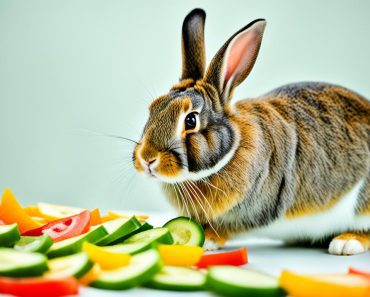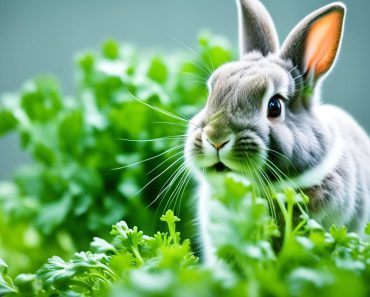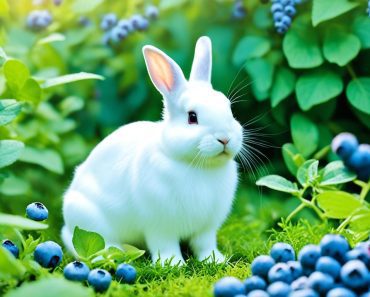Hi, I’m here to answer a common question among rabbit owners: Can rabbits eat cabbage? The answer is yes! Cabbage is a safe and nutritious vegetable that can be included in your rabbit’s diet. However, it’s important to feed cabbage in moderation and take a few precautions to ensure your furry friend stays healthy. Let’s explore some safely feeding tips for rabbits and cabbage.
Can Rabbits Eat Cabbage? Yes, they can. As an occasional treat.
- Cabbage is a safe and nutritious vegetable for rabbits to eat in moderation.
- Introduce cabbage gradually and monitor your rabbit’s digestion.
- Include a variety of safe vegetables and leafy greens in your rabbit’s diet.
- Choose dark green, leafy cabbage varieties for optimal nutrition.
- Consult with a veterinarian for any diet or health concerns regarding your rabbit.
Benefits of Cabbage for Rabbits
Cabbage offers numerous benefits for rabbits. As a nutrient-rich vegetable, it is packed with essential vitamins and minerals that contribute to a rabbit’s overall health. Cabbage contains vitamin A, which promotes good eyesight and supports a strong immune system. Vitamin C is vital for the production of collagen, a protein that helps maintain healthy skin and connective tissues.
Cabbage is also an excellent source of vitamin K, which plays a crucial role in blood clotting, bone health, and overall well-being. These vitamins, along with the high fiber content of cabbage, contribute to a rabbit’s healthy digestion and help prevent gastrointestinal issues like GI stasis.
Furthermore, cabbage has a high water content, which helps keep rabbits hydrated and supports optimal kidney function. Adding cabbage to a rabbit’s diet not only provides essential nutrients but also adds variety to their meals, encouraging healthy eating habits.
Quotes:
“Cabbage is a nutrient-rich vegetable that offers several health benefits for rabbits. It contains important vitamins like A, C, and K, which contribute to overall well-being.”
Benefits of Cabbage for Rabbits:
- Provides essential vitamins A, C, and K
- Promotes healthy digestion and prevents gastrointestinal issues
- Supports hydration and kidney function
- Encourages healthy eating habits
Adding cabbage to a rabbit’s diet can be a great way to enhance their nutrition and overall health. However, it’s important to remember that moderation is key. Too much cabbage can lead to digestive discomfort, so it’s crucial to monitor your rabbit’s reaction and introduce it gradually. Additionally, it’s important to balance cabbage with other leafy greens and vegetables to ensure a well-rounded and balanced diet for your furry friend.
Cautions and Considerations when Feeding Cabbage to Rabbits
While cabbage is generally safe for rabbits, there are some cautions and considerations to keep in mind when incorporating it into their diet.
Feeding cabbage in excess can cause gas and digestive discomfort in some rabbits, so it is important to introduce it gradually and in small quantities. Start by offering a small piece and observe your rabbit’s reaction before increasing the amount.
Cabbage contains calcium, which can be problematic if fed in excessive amounts. High calcium intake can lead to urinary problems and the formation of bladder stones in rabbits. To prevent this, it is crucial to balance cabbage with other low-calcium vegetables in their diet.
When feeding cabbage to rabbits, it is essential to wash it thoroughly to remove any pesticides or contaminants that may be present on the leaves. This ensures the safety and well-being of your rabbit.
Monitoring your rabbit’s digestion is crucial when introducing new foods. If any signs of digestive upset arise after feeding cabbage, such as gas, bloating, or diarrhea, it may be necessary to reduce or eliminate cabbage from their diet.
Remember that variety is key to providing a balanced diet for your rabbit. While cabbage can be a nutritious addition, it should be just one component of a diverse vegetable and greens diet.
For more information on safe foods for rabbits and their dietary needs, consult with a veterinarian or rabbit specialist.
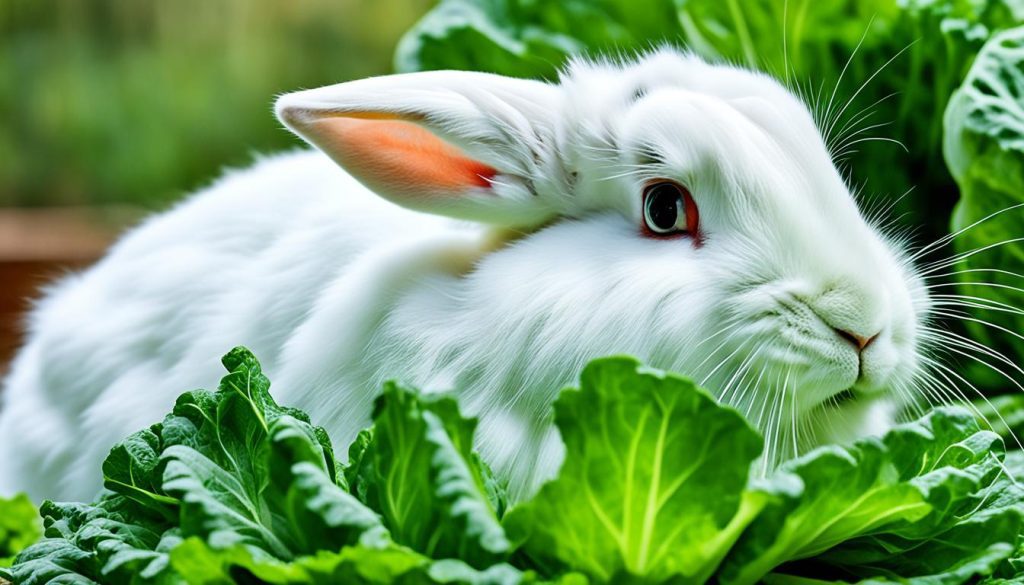
Tips for Feeding Cabbage to Rabbits Safely and Responsibly
When it comes to feeding cabbage to rabbits, it’s important to do so safely and responsibly to ensure their health and well-being. Here are some tips to keep in mind:
- Introduce cabbage gradually: Begin by offering small amounts of cabbage and gradually increase the portion size over time. This allows your rabbit’s digestive system to adjust and reduces the risk of any digestive issues.
- Monitor your rabbit’s reaction: Pay close attention to how your rabbit reacts to cabbage. If you notice any signs of digestive upset, such as gas or bloating, it may be best to reduce or eliminate cabbage from their diet.
- Balance cabbage with other vegetables: While cabbage is a nutritious vegetable, it should not be the sole component of your rabbit’s diet. Ensure they also have access to a variety of other safe vegetables to maintain a balanced diet.
- Wash cabbage thoroughly: Before offering cabbage to your rabbit, make sure to wash it thoroughly to remove any pesticides or contaminants. This helps to minimize the risk of any adverse reactions.
- Consult with a vet: If you have any concerns or questions about feeding cabbage to your rabbit, it’s always best to consult with a veterinarian. They can provide personalized advice based on your rabbit’s specific needs and health conditions.
By following these tips, you can safely incorporate cabbage into your rabbit’s diet, providing them with a variety of nutritious and delicious options as part of a balanced rabbit diet.
Best Varieties of Cabbage for Rabbits
When it comes to feeding cabbage to rabbits, it’s important to choose the right varieties that are safe and nutritious for them. Opt for dark green, leafy varieties such as savoy cabbage, spring greens, and cavolo nero. These varieties are lower in calcium and less likely to cause gas or bloating in rabbits. They are also packed with essential nutrients that support your rabbit’s well-being.
Cabbage varieties like white cabbage should be avoided as they have less nutritional value compared to their darker counterparts. Including a variety of cabbage in your rabbit’s diet is important to ensure a well-rounded and balanced nutritional intake.
- Savoy cabbage
- Spring greens
- Cavolo nero
Remember, variety is key when it comes to feeding cabbage to rabbits. While cabbage can be a healthy addition to their diet, it should be part of a varied meal plan that includes other safe vegetables and leafy greens. This ensures that your rabbit receives a diverse range of nutrients for optimal health.
As you can see, the image provides a helpful visual of cabbage, a nutritious vegetable for rabbits, reiterating the importance of including it in their diet along with other safe vegetables and leafy greens.
When to Be Cautious about Feeding Cabbage to Rabbits
While cabbage is generally safe for rabbits, there are instances when caution should be exercised. If your rabbit experiences diarrhea or loose stools after eating cabbage, it may be best to eliminate it from their diet until the symptoms resolve. Some rabbits may have a sensitivity to cabbage and may not tolerate it well. Additionally, if your rabbit has a known history of calcium-related issues, it is important to limit their cabbage intake and choose low-calcium vegetables instead.
Feeding Cabbage to Baby Rabbits
When it comes to feeding baby rabbits, it is important to follow specific guidelines to ensure their health and well-being. Babies have sensitive digestive systems, so introducing new foods gradually is crucial to prevent any digestive upset. It is generally recommended to avoid feeding baby rabbits any fruits or vegetables until they reach 12 weeks of age.
At the 12-week mark, you can begin slowly introducing cabbage to your baby rabbits’ diet. Start with small quantities and closely monitor their reaction. It’s important to observe how their digestive system responds to the cabbage. If they tolerate it well without any signs of discomfort, you can continue feeding them cabbage in moderation as part of their balanced diet.
Remember, each rabbit is unique, so pay attention to their individual needs and reactions. If you notice any negative changes in their digestion or overall well-being, it is best to consult a veterinarian for further guidance.
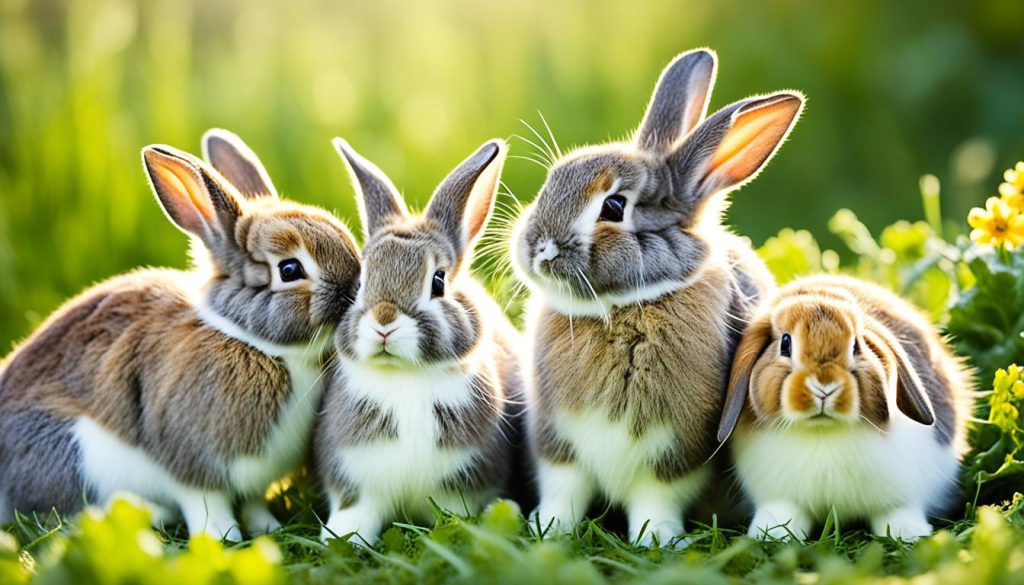
Conclusion
Cabbage can be a safe and nutritious addition to a rabbit’s diet. It provides essential vitamins, minerals, and fiber that contribute to overall health and well-being. However, it is crucial to feed cabbage in moderation and take certain precautions to ensure your rabbit’s well-being.
When introducing cabbage to your rabbit’s diet, it is recommended to start slowly and monitor their digestion. Some rabbits may be more sensitive to cabbage and may experience digestive issues such as gas and bloating. It is also important to balance cabbage with other safe vegetables and leafy greens to provide a diverse and balanced diet for your rabbit.
Consulting with a veterinarian or rabbit specialist is always a good idea if you have concerns or questions about your rabbit’s diet or health. They can provide guidance specific to your rabbit’s needs and ensure that their diet is optimized for their well-being.
Remember, can rabbits eat cabbage? Yes, they can, but it is important to feed it in moderation and in combination with other safe foods for rabbits. By following these guidelines, you can ensure that your rabbit enjoys the nutritional benefits of cabbage while maintaining a healthy and balanced diet.

